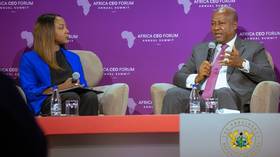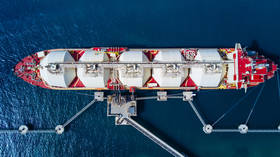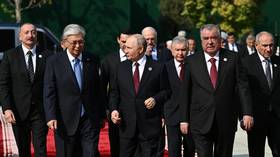Pump oil ‘like there’s no tomorrow’ – Ghanaian president

Ghanaian President John Mahama has urged investors to ramp up oil production in the West African country like “there’s no tomorrow,” as delays in drilling could leave valuable resources untapped amid a global transition to renewable energy.
The call comes as Ghana faces a steady decline in crude output.
“Everybody who has any assets should be pumping like there’s no tomorrow,” the Ghanaian leader said, speaking at the Africa CEO Forum in Abidjan, the commercial capital of Ivory Coast (Cote d’Ivoire) on Tuesday.
“I will lay a red carpet to anybody who wants to drill and pump oil because in the next decade or two, the world would have made a transition to renewables,” he explained.
Despite calling for accelerated drilling, Mahama reaffirmed Ghana’s commitment to clean energy, noting that the Renewable Energy Act mandates at least 10% of the national energy mix come from renewable sources.
Ghana’s oil production fell to 48.25 million barrels in 2023, down from 71.44 million in 2019, according to the Public Interest and Accountability Committee, which monitors petroleum revenues.
Mahama, who took office in January, accused the former government of holding back the sector through regulatory delays and disputes with key investors, including London-based Tullow Oil and Italy’s energy giant Eni.
“ENI was held in contempt and they had to move all their expatriate management to Cote d’Ivoire. We saw a lot of decline in production, about 7% annually,” he said, before adding that the company has now returned to Ghana and is “drilling again.”
He said the unresolved “squabbles” had undermined investor confidence, resulting in “a lot of disinvestment,” but added that “investor confidence has come back.”
Mahama said his government is pursuing new commitments to boost oil and gas production, including plans to build a second gas processing train to handle increased output from the country’s first offshore field, Jubilee.
Ghana’s major offshore assets include the Jubilee Field, operated by Tullow, along with the TEN and Sankofa fields, involving firms such as Kosmos Energy, PetroSA, and state-owned GNPC.













